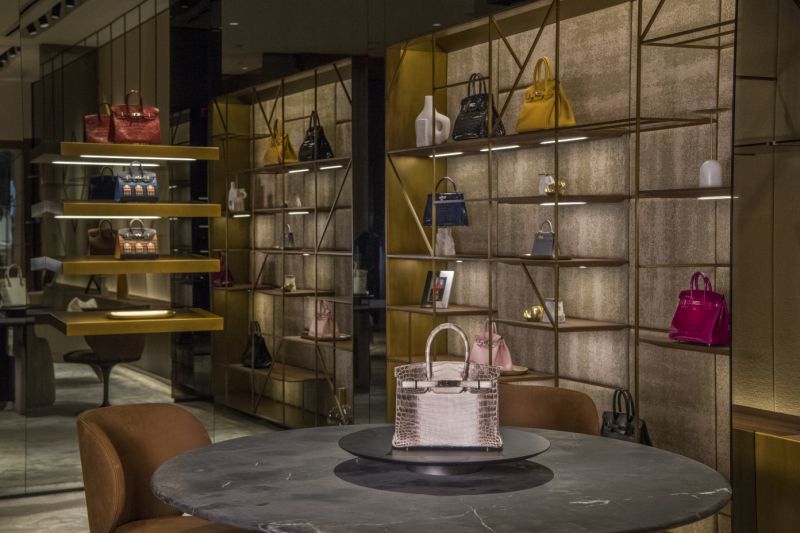Miami seemed the perfect spot for Privé Porter to test traditional retail for the first time.
“For a lot of wealthy customers, [Miami] is already on their list of yearly destinations to visit,” Jeffrey Berk, cofounder with his wife Michelle of Privé, said, adding that about 35 percent of his buyers are based in the Middle East. The store will be in a 1,250-square-foot space in Brickell City Center, a large mixed-use property with a retail segment focused on luxury. The lease is only for six months, but with an option to extend indefinitely (another sign of the flexibility landlords are offering amid the pandemic).
New York is, of course, also a popular home and vacation stop for the wealthy. But Privé’s first step outside of its main Instagram shop, where it offers rare and lightly used Hermès bags, turned out to be a bit too experimental to drive sales. A townhouse in the exclusive Sutton Place section of Manhattan’s Upper East Side that the Berks opened in 2017 as a private showroom didn’t last long.
“That looked great on paper,” Berk said, “it just was not the best environment for sales.”
The Berks now live and operate out of Delray Beach in Florida, so Miami is close by; but proximity wasn’t the main consideration for the new store. “If we lived in Houston, that’s not where I would have opened a store,” Berk said.
His plan is to have three Privé stores open next year, with a traditional store in Manhattan and one in Beverly Hills. This was the growth trajectory Berk planned before the coronavirus pandemic, which has had seemingly no effect on his wealthy customers. Same goes for Hermès. The average Privé transaction is $68,000 and the company is on track to do $18 million in sales this year, if not more. That’s roughly the same number Privé saw last year and the year before.
“Business was better than ever in March, April, June,” Berk said. “Conversations with clients have gone, and this is almost verbatim: ‘Well, we’re not buying that house in Santa Barbara this year, what have you got for me?’
“The fun thing has been getting the few new phone calls from that woman that does bleed orange and brown, who would never stoop to go to a reseller,” Berk added. “You get the panicked phone call about the Hermès store not being open, “I would never normally do this, but…’ They take it so seriously.”
Berk noted another part of this new demand from a consumer who would normally be shopping in-store for the newest color or skin Birkin is that the coronavirus lockdown in Europe led to Hermès making an estimated 150,000 fewer bags this year. Nevertheless, Privé is able to trade in many of the newest Hermès bag styles, including from 2020, because of its close relationships with customers.
“We have this community of actual and active buyers and sellers, so we have constant supply,” Berk said.
But he has plans for the business beyond just getting into traditional retail. Berk, who said he met with an Hermès executive last year at the brand’s Paris headquarters, is relatively frank in his desire to be either acquired or get a sizable outside investment that will allow Privé to substantially grow its business. He pointed to Compagnie Financière Richemont’s acquisition of Watchfinder and said the $18 million in annual sales Privé is doing a year is its “ceiling” given the company’s current size.
“The acquisition of Watchfinder was inevitable in that everyone will have to take control of their resale market eventually,” Berk said. “But it never would have happened if Watchfinder hadn’t opened doors.
“We have to show that we have doors one, two, three operating and getting incremental business,” Berk said. “That we’re not just a mom and pop working off of a WhatsApp phone list.”

